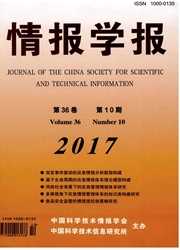

 中文摘要:
中文摘要:
有关电子政务服务能力的研究很少,更缺乏领导、团队、下属等人因要素对其影响关系的实证研究。基于地方政府职能部门公职人员的大样本调研数据,用领导意愿、团队认同、下属认同分别表征领导、团队、下属三角色对电子政务服务建设工作的认识与支持程度,对该问题进行了研究。研究发现:领导意愿、团队认同、下属认同对随需应变能力、服务传递能力、内容服务能力的影响呈现互为消长的变化规律;另外,领导意愿和团队认同主要是通过随需应变能力和服务传递能力来影响内容服务能力,下属认同不仅直接影响内容服务能力也通过服务传递能力间接对其产生影响。研究结果反映了领导、团队与下属对该工作关注视角的不同,上下级关注视角的延伸和互动可能是改善我国地方政府职能部门电子政务服务能力的有效途径。
 英文摘要:
英文摘要:
Few studies have examined e-government (E-Gov) service capabilities (EGSC) so far. Less research studied the impact relationships and impact routes of human factors, such as leadership, team, and faculty, on the EGSC. Based on the survey data from Chinese local government faculties, this paper discussed the question firstly. The results showed that leader's desire ( LD ) , team cognition (TC) and faculty cognition (FC) had different impacts on EGSC. In detail, LD and TC impacted Content Service Capability (CSC) through On-Demand Capability (ODC) and Service Delivery Capability (SDC). And, FC not only had direct impact on CSC but also had indirect impact on CSC through SDC. Those showed the differences of the three characters' viewpoints. Those differences might be the bottleneck in improving EGSC for Chinese local government. And the extension and interactivity of the views among leader, team and faculty might be the effective approach to deal with the predicament.
 同期刊论文项目
同期刊论文项目
 同项目期刊论文
同项目期刊论文
 期刊信息
期刊信息
